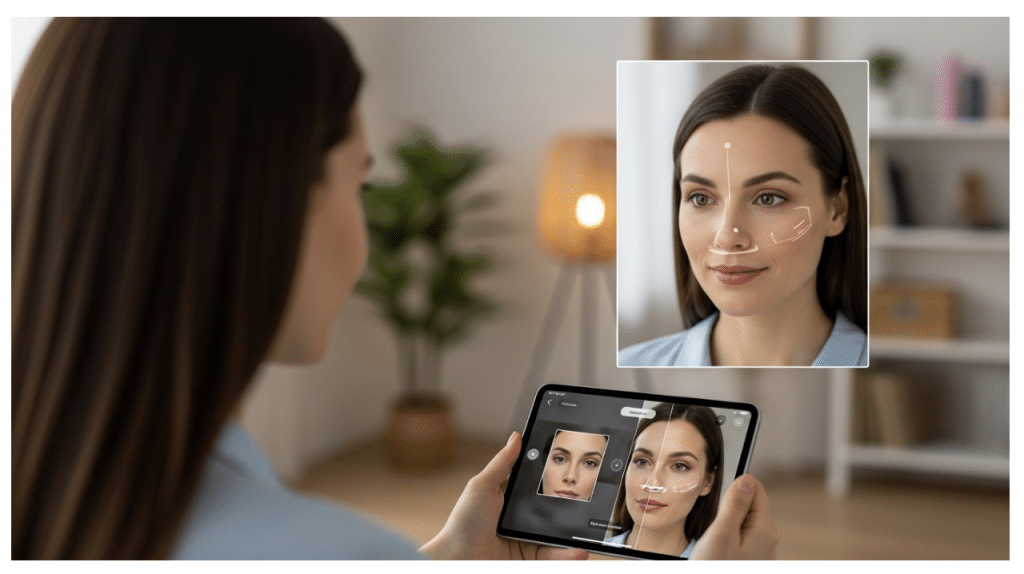
In today’s beauty landscape, augmented reality (AR) is no longer a novelty, it’s an expectation. From smartphone try-ons to smart mirrors in stores, virtual makeup and beauty AR technologies have transformed how consumers explore products and make purchase decisions. For brands, these tools offer a way to merge digital convenience with the confidence of in-person testing.
With global beauty e-commerce projected to exceed $7 trillion by 2025 and retail AR adoption growing nearly 26% annually, the message is clear: brands that invest in AR aren’t just keeping up, they’re shaping the future of personalized retail. Below are five standout platforms leading the charge.
We selected platforms based on:
- Ease of integration: How smoothly the solution fits into existing websites, apps, or retail systems.
- Customization and brand fit: Flexibility to match brand aesthetics, product lines, and user journeys.
- AR & AI performance: Realism of makeup rendering, accuracy of facial tracking, and adaptability to lighting and skin tone.
- Analytics and impact: Ability to drive engagement, improve conversions, and provide actionable insights.
- Scalability: Suitability for brands ranging from indie startups to global enterprises.
1. Banuba: Advanced Face Filters and Beauty AR SDK
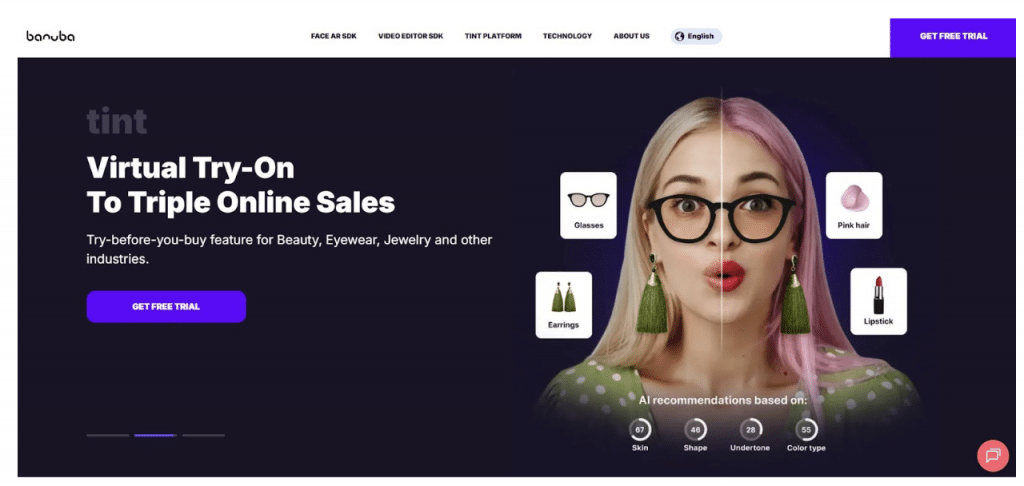
Banuba is a developer-focused AR platform offering a powerful software development kit (SDK) that lets beauty brands embed virtual try-on directly into their apps, websites, or in-store kiosks.
Its technology delivers remarkably realistic facial tracking and rendering, supporting full-face makeup applications, from lipstick and foundation to eyeshadow and blush. Banuba’s SDK gives brands total creative control: you can tailor the interface, upload product SKUs, and adjust effects to fit your brand identity.
Because the platform supports iOS, Android, and web, it’s ideal for companies running omnichannel experiences. Many beauty brands use Banuba to power “try it on” buttons on e-commerce pages or to gather analytics on user preferences, improving both marketing and product development strategies.
Key Strengths:
- Enterprise-grade AR performance with developer flexibility
- Cross-platform support (mobile, web, kiosk)
- Real-time rendering with accurate tone and lighting adaptation
- Ideal for brands seeking custom AR experiences rather than plug-and-play apps
- Scalable SDK architecture for long-term innovation
2. ModiFace by L’Oréal: The Pioneer in Beauty AR
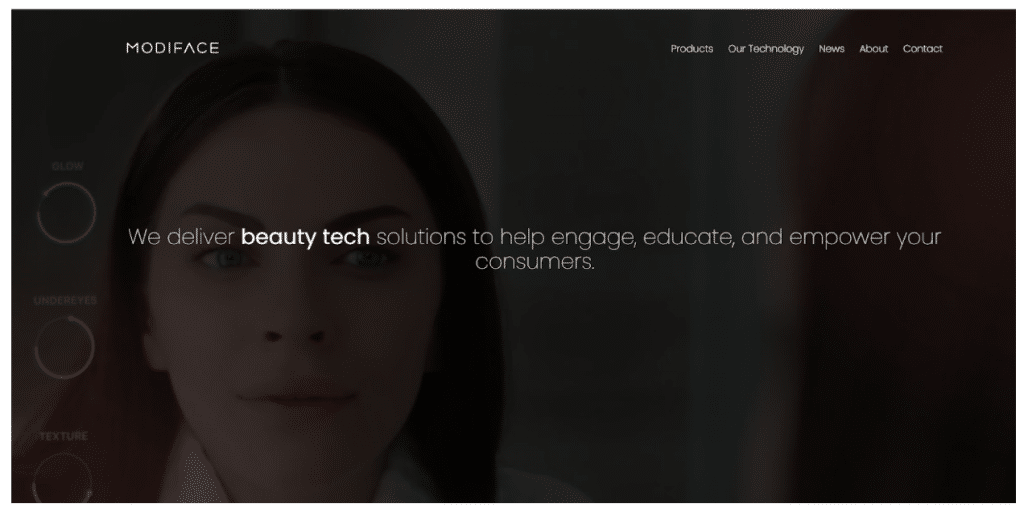
ModiFace remains the industry’s original benchmark for virtual makeup. Acquired by L’Oréal, the platform now powers AR experiences across many of the group’s brands, including Lancôme, Maybelline, and YSL Beauty.
Its technology allows users to virtually test lipstick, foundation, eyeshadow, and even hair color in real time. What makes ModiFace distinctive is its precision: advanced skin-tone detection and light-adjustment ensure hyper-realistic results. In recent years, ModiFace has expanded into skin diagnostics and AI-driven shade matching, deepening its data insights for both users and brands.
Beauty houses that use ModiFace consistently report higher engagement and conversion rates, some noting double-digit lifts in online sales tied directly to AR try-ons.
Key Strengths:
- Proven scalability across global beauty brands
- Exceptional realism and color accuracy
- Deep AI integration for skin analysis and product matching
- Compatible with mobile, web, and in-store smart mirrors
- Backed by L’Oréal’s continued R&D investment
3. Perfect Corp’s YouCam Makeup: A Leader in AI-Driven AR
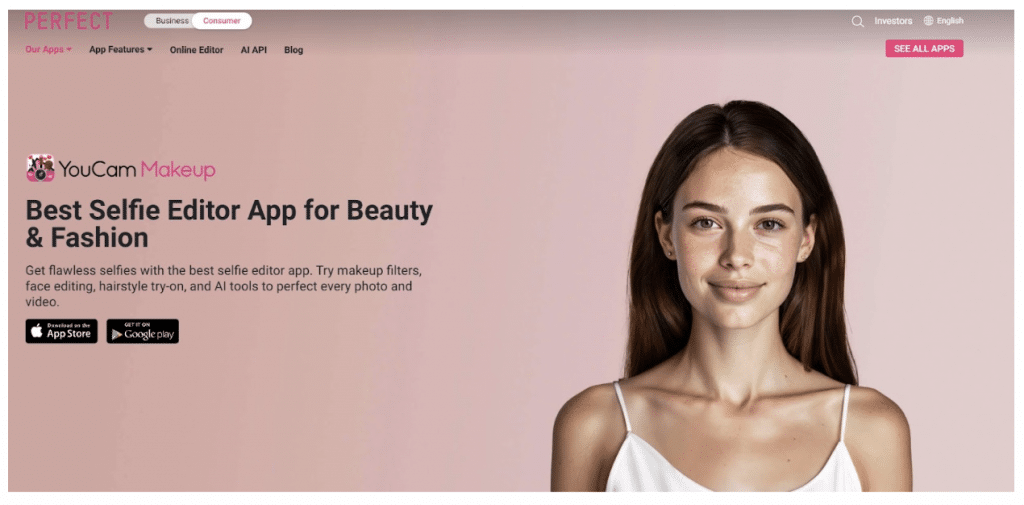
Perfect Corp’s YouCam Makeup is one of the most recognized names in virtual beauty. What began as a consumer app with hundreds of millions of downloads has evolved into a robust B2B platform for brands.
Its AR engine delivers realistic product rendering, capturing subtle finishes like matte, satin, or shimmer, and its AI skin-analysis tools assess tone and texture to recommend suitable shades. Brands use YouCam to power interactive e-commerce try-ons, livestream shopping events, and influencer campaigns that encourage user-generated content.
YouCam’s dual strength lies in engagement and data. It not only drives trial and purchase but also gives brands insight into how consumers interact with products digitally, enabling more personalized marketing.
Key Strengths:
- Combines AR visualization with AI skin and tone diagnostics
- Excellent for social-commerce and influencer activations
- Highly engaging consumer experience with measurable ROI
- Multi-channel support (mobile, web, livestream, social)
- Backed by strong analytics and brand partnership ecosystem
4. GlamAR: Customizable AR Solutions for Beauty Retailers
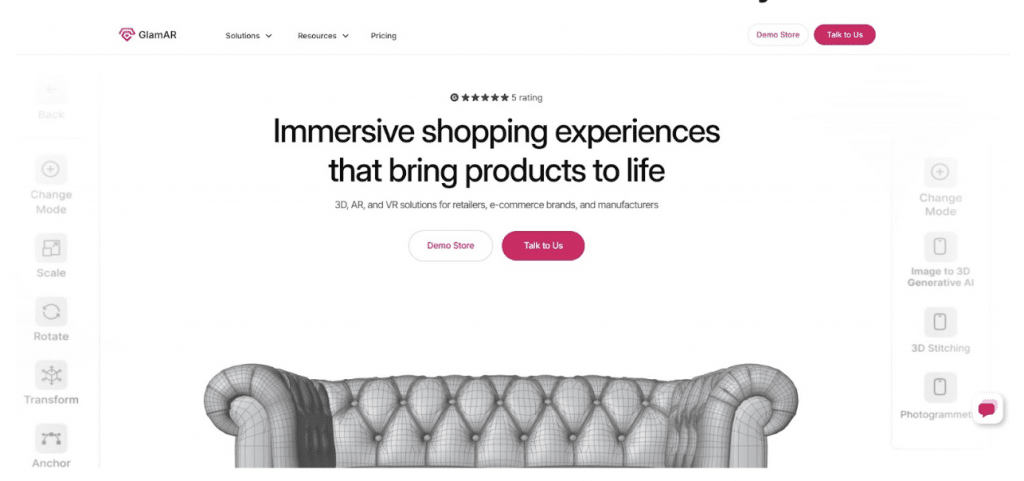
GlamAR is a white-label AR solution built for speed and accessibility. It enables beauty retailers to launch virtual try-ons for makeup, hair color, and even accessories without heavy technical overhead.
Its focus is usability: a clean, intuitive interface that integrates directly into e-commerce sites or mobile apps. Implementation typically takes weeks, not months, and requires minimal engineering resources. The platform also provides built-in analytics that track user engagement, dwell time, and conversion performance.
GlamAR’s flexible pricing and rapid deployment make it especially appealing to mid-sized brands that want to innovate but don’t have the resources to develop proprietary AR systems.
Key Strengths:
- Fast, white-label deployment
- Covers multiple beauty categories (makeup, hair, accessories)
- Simple integration with e-commerce platforms
- Built-in data and analytics dashboard
- Great balance of affordability and customization
5. FaceCake: AI-Powered Virtual Try-On and Visual Commerce
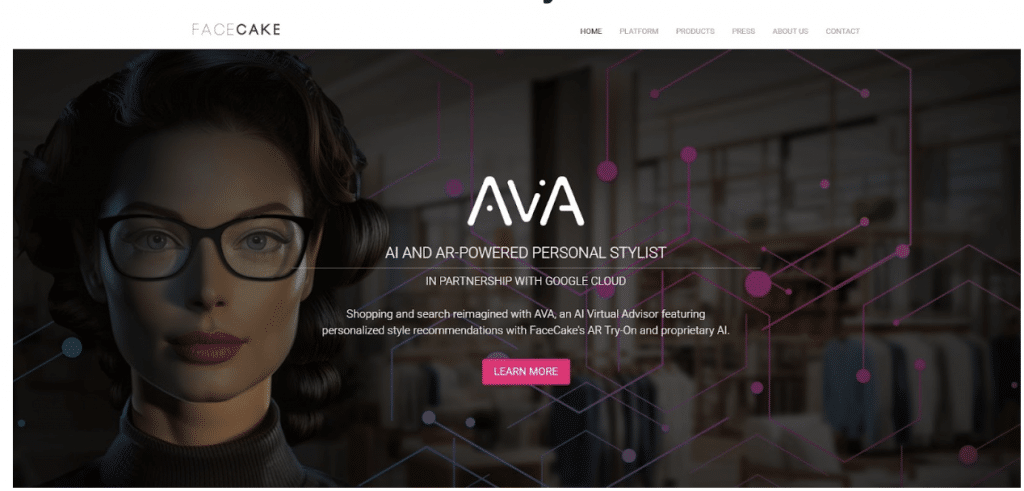
FaceCake bridges the gap between AR try-on and frictionless e-commerce. The platform supports virtual testing for makeup, eyewear, and skincare, letting consumers see products on themselves and purchase directly within the same interface.
Its “Visual Commerce” framework turns try-on into a shopping experience: users can compare looks, switch products instantly, and check out seamlessly. FaceCake’s browser-based setup eliminates the need for app downloads, reducing barriers to engagement.
Beauty and fashion brands alike use FaceCake to connect AR interactivity with measurable sales outcomes, proving how visual commerce can drive conversion as effectively as traditional in-store consultations.
Key Strengths:
- Integrated try-on and in-experience shopping
- No-app, browser-based user flow
- Multi-category support (beauty, eyewear, accessories)
- Real-time comparison and sharing features
- Focus on measurable commerce outcomes
Additional Contenders
A few rising or niche players worth watching:
- Revieve: AI-powered skin diagnostics and personalized skincare AR for retailers.
- FFFACE.ME: Specializes in luxury-brand AR campaigns and virtual influencer activations.
- GlamAI: Emerging AI engine delivering generative virtual try-on experiences for beauty and fashion.
Conclusion
Virtual makeup and beauty AR tools have evolved from fun filters to business-critical infrastructure. Choosing the right platform depends on your brand’s size, goals, and technical capabilities:
- Banuba and ModiFace suit brands needing deep customization and enterprise-grade precision.
- YouCam Makeup excels at social-first and data-rich campaigns.
- GlamAR offers speed and affordability for retailers ready to modernize quickly.
- FaceCake stands out for its seamless bridge between try-on and instant purchase.
As AI and AR converge, expect even more personalization – real-time skin assessments, climate-based recommendations, and virtual stylists guiding the shopping journey. Brands that invest in these capabilities today will be the ones defining beauty retail tomorrow.
Last Updated on October 22, 2025 by Ash